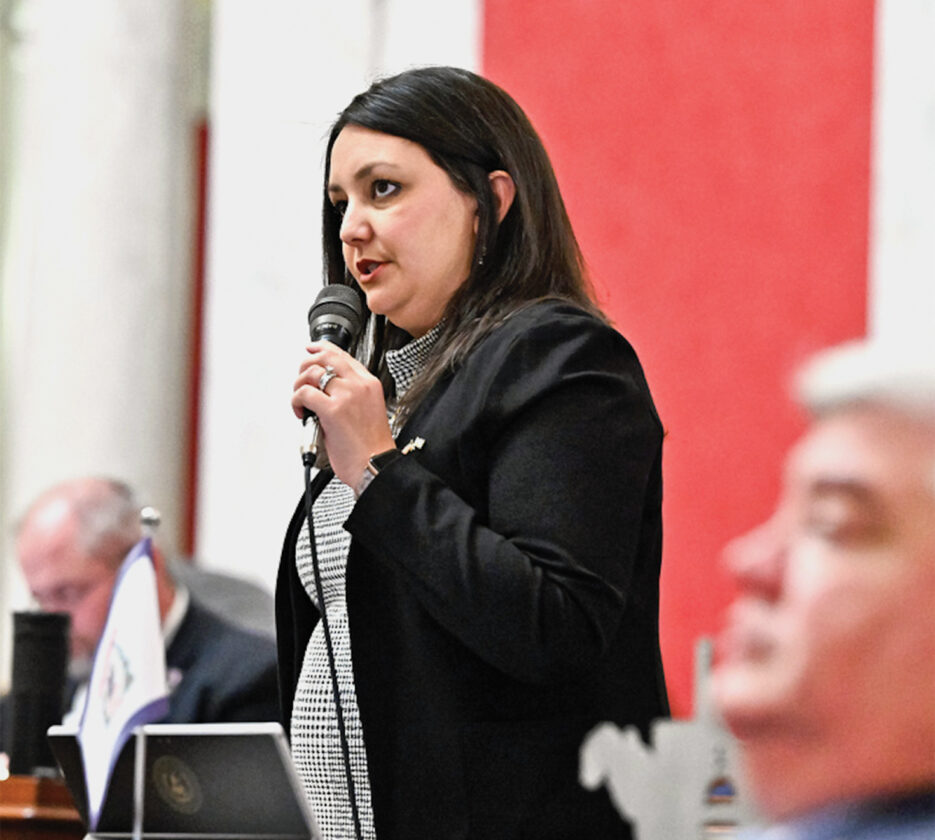Committee approves charter school classification

Photo Courtesy/WV Legislative Photography State Senate School Choice Committee Chairwoman Patricia Rucker said SB 860 would be another option for high-risk students by allowing specialized charter schools.
CHARLESTON — Members of the West Virginia Senate committee approved a bill Wednesday to create wide-ranging charter schools aimed at troubled students.
The Senate School Choice Committee recommended a committee substitute for Senate Bill 860, creating alternative high-risk population public charter schools, during their Wednesday afternoon meeting. The bill now heads to the Senate Finance Committee, though a request is pending to waive the second committee reference since there is no funding involved.
SB 860 would authorize the creation of public charter schools as an alternative school for high-risk students. These specialized public charter schools would be required to have 70% of their enrollment come from high-risk students and be approved by the Professional Charter School Board. The bill would also permit an enrollment count three times in a year to determine how much state funding the school would receive.
High-risk students would include students who have been expelled from public or private schools, suspended for more than 10 days in a school year, students in the custody of the judicial system, previous school dropouts, students with truancy issues, students held behind a grade at least once between Kindergarten and eighth grade, students who lack the required credits to graduate, students who have enrolled in multiple schools in a single year, foster children, and homeless youth.
West Virginia’s public charter school pilot program was created in 2019 by the Legislature and updated in 2021. The pilot program allows for the approval of 10 public charter schools every three years and a limit of two statewide virtual charter schools. State Code allows for the PCSB to authorize new charter schools, though counties can also authorize charter schools or create county-level virtual charter schools.
But even before the state’s public charter school pilot program was formed, the West Virginia National Guard operated the West Virginia ChalleNGe Academy, which is a quasi-military 22-week program based at Camp Dawson in Preston County and the former WVU Tech campus in Montgomery. The academy is aimed at academically challenged and at-risk students who apply to the program.
Senate School Choice Committee Chairwoman Patricia Rucker, R-Jefferson, is the lead sponsor of the bill. She said it is meant to provide an even greater focus on a community of students who need additional help. Rucker said she toured similar charter schools in Georgia and Arizona.
“The focus is on this community that needs a little bit more individualized instruction, smaller class sizes, and sometimes just greater flexibility,” Rucker said. “It just blew me away how amazing they’re handling this particular very challenging population in a very efficient manner, and these students are getting the help they need. Once they are at a point where they can safely return, because some of these have behavioral issues, they do return to their regular school.”
The original bill and the committee substitute for 860 included pregnant students and students who are parents in the definition of high-risk. Rucker offered an amendment to the bill to change that language to students who need greater flexibility in their scheduling or have circumstances which would benefit from this kind of public charter school.
The amendment came after Senate President Pro Tempore Donna Boley, R-Pleasants, raised concerns about lumping in pregnant students with other high-risk students.
“I still think that ‘students who are pregnant and/or parenting’ stands out,” Boley said. “There are probably drug kids here or students who have been kicked out for certain reasons, but students who are pregnant?”
“We do not want to make it seem that pregnancy or parenting is on par with folks who have been suspended or expelled or anything else,” Rucker agreed.



